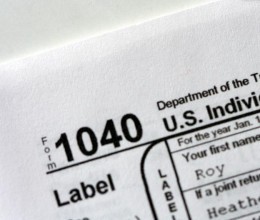Cheating on Taxes, and Getting Away With It

This piece by David Cay Johnson in Newsweek called “How to Cheat on Your Taxes” is less about cheating on your taxes, and more about why so many people get away with it:
Cheating on your taxes carries little risk, despite the myth that legions of aggressive auditors and tax collectors hound taxpayers, a myth the IRS revives each spring when it noisily arrests a few notable people for tax evasion, knowing it will make the news. This strategy is known as general deterrence: Make a very public example of a few people to scare others into complying.
But Congress has cut and cut the IRS staff. Last year the IRS budget worked out to $33.55 per American, a 20 percent reduction compared with 2002, even though the number of taxpayers has grown 11 percent. Those cuts came as Congress enacted myriad laws making the tax code ever more complex and passed all sorts of social welfare legislation via tax code changes.
All that means there are fewer audits of both people and corporations. And most examinations of tax returns are so superficial that a few IRS agents deride them as audit lite. Here’s one indication of how little you have to fear: Last year couples and individuals filed more than 144 million tax returns, and fewer than 1,000 people went to prison, all of them for egregious misconduct. Judges are getting tougher, though. Half of those prison sentences last year were for 15 months or more, compared with just four months in the 1990s.
Johnson also adds that the U.S. Justice Department never indicts someone for cheating on a single tax return — they do it for multiple or repeated offenses.
But tax detective Jerry Curnutt, who retired from the IRS in 2000, has made it his mission in life to get the IRS to go after all the tax cheats out there. While working for the IRS, Curnett discovered that there were simple ways for people to cheat on their taxes without gaining notice from the government. He was given commendations for his work, but according to Johnson, “the IRS never put Curnutt’s insights into practice.” Curnutt said if New York state hired him to look for tax cheats, “there is only one possible outcome — all hell will break loose.”
Photo: John Morgan
Support The Billfold
The Billfold continues to exist thanks to support from our readers. Help us continue to do our work by making a monthly pledge on Patreon or a one-time-only contribution through PayPal.
Comments